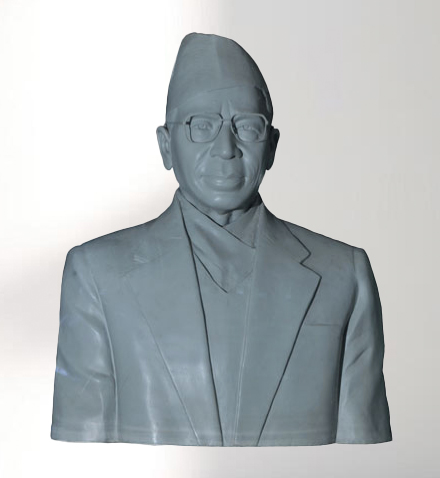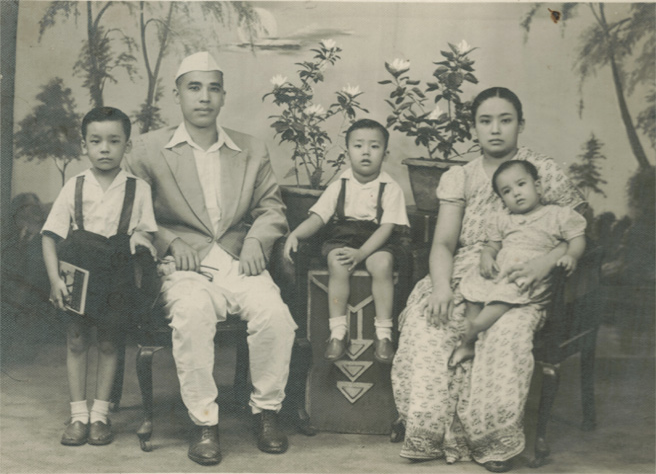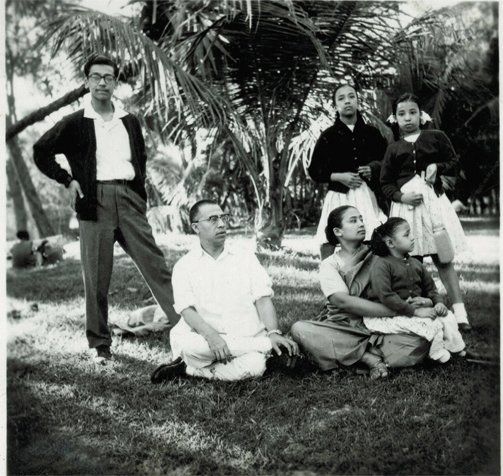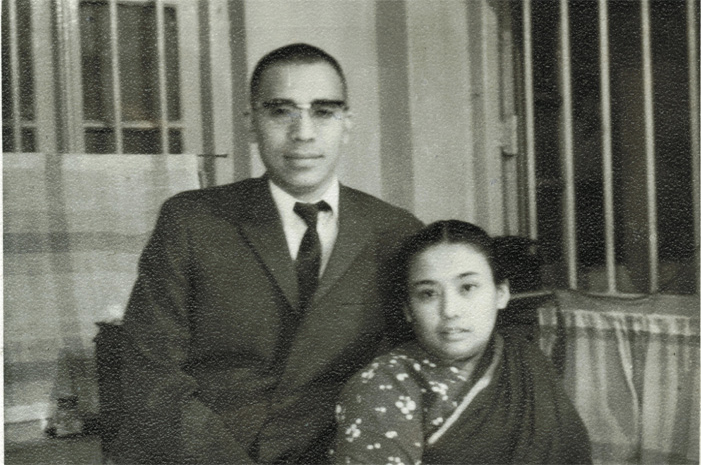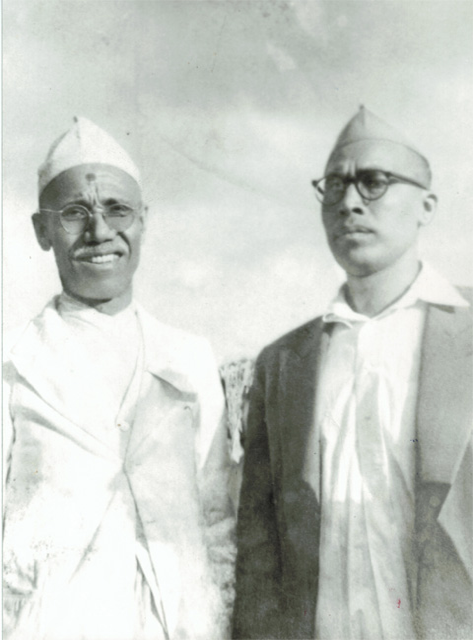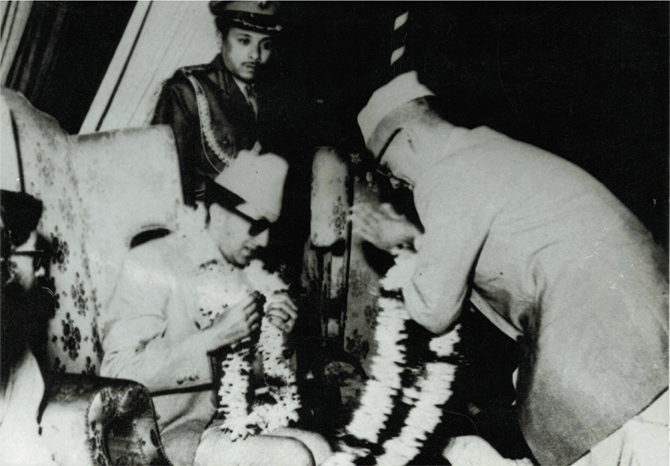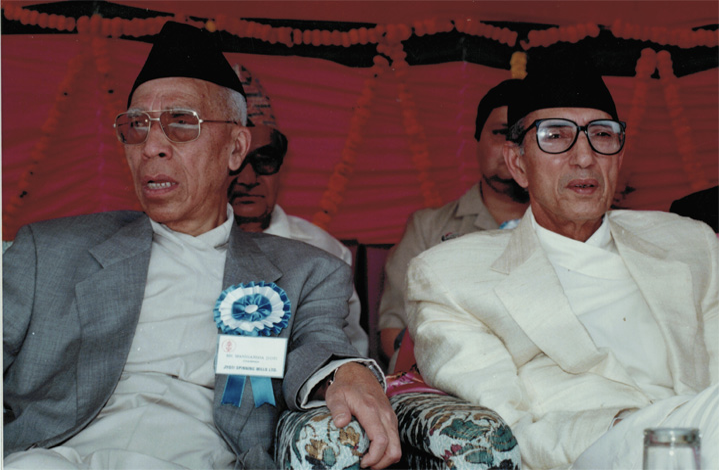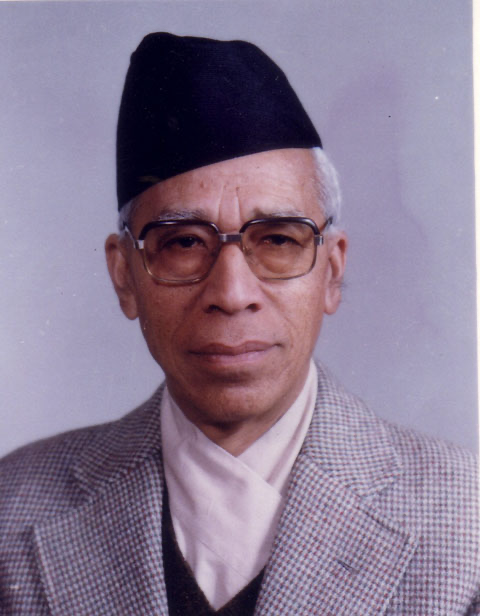
“Gāravo ca nivāto ca, santutthi ca kataññuta;
Kalena dhammassavanam, etam mangalamuttamam”
To make elders proud, be polite, content, grateful
and to listen to the words of Dhamma in time
that is the highest welfare
Mangalasuttam, Suttanipatapāli, Khuddakanikāya
from Tipitaka (Teachings of Gautama, the Buddha)
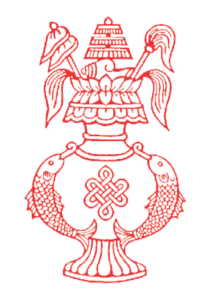
Maniharsha
Jyoti Kansakar
Founder of Jyoti Group
Renowned Industrialist & Businessman of Nepal,
Social Worker, Proponent of Newari Language
and Buddha Dharma, Committed follower of
Buddha, Vipassana Mediator,
Dhamma Worker.
Birth:
N.S. 1038 Kacchiaga Saptami
B.S. 1974 Marg 20
A.D. 1917 December 5
Demise:
N.S. 1113 Pohelaga Navami
B.S. 2049 Magh 3
A.D 1993 January 16
“गारवो चा निवातो का, सन्तुति का कतानुता |
कालेन धम्मसावनम्, एतम् मंगलमुत्तमम् ||”
ठूलाबडालाई गर्वित बनाउन शिष्ट, सन्तुष्ट,
कृतज्ञ हुनुपर्छ र समयमै धर्मका वचनहरू सुन्नु यी नै
सबैभन्दा ठूलो कल्याण हुन्।
मंगलसुत्तम, सुत्तानिपातपली, खुद्कनिकाया
तिपिटकाबाट (गौतम बुद्धका उपदेशहरू)

मणिहर्ष
ज्योति कंशाकार
ज्योति समूहका संस्थापक
नेपालका प्रसिद्ध उद्योगपति
तथा ब्यापारी,
समाजसेवी, नेवारी भाषा एवं बुद्ध धर्मका अध्येता,
बौद्ध धर्मका उपासक, विपश्यनाका साधक, धम्म कार्यकर्ता |
जन्म
नेसं १०३८ काछियागा सप्तमी
विसं १९७४ मंसीर २०
इसं १९१७ डिसेम्बर ५
स्वर्गारोहण
नेसं १११३ पोहेलागा नवमी
विसं २०४९ माघ ३
इसं १९९३ जनवरी १६
BIOGRAPHY
On Bikram Sambat 1974 Marg Krishna Saptami (December 5th, 1917), the then famous astrologer, Madhavraj Joshi, was asked to the make the birth chart of a child born on that day. After examining the birth chart, he delightedly revealed – “Oh, this child is blessed with good fortune. In his lifetime, he will achieve great things. His fame will spread far and wide.”Upon learning their child’s promising future, the parents, Bhajuratna Kansakar and Gyanmaya Kansakar, were overjoyed and named their son Maniharsha Jyoti – meaning gem (Mani) of happiness (Harsha).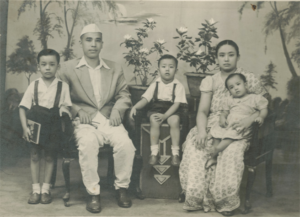
Although the astrologer predicted a bright future, Maniharsha Jyoti’s childhood was not a happy one. A devastating fire broke out in Keltole Machendra Bahal, where shops run by Bhajuratna and his older brother Kulratna, along with two other shops they managed by workers burnt to the ground, including stocks of cloths and raw yarn.
As the terrible fire burned several houses, the house at Takhache, where Maniharsha Jyoti was born, was left untouched. Some said it was divine intervention while others reasoned it was saved because for generations the family made bronzeware in the house. Whatever the reason, for months as the fire ravaged the neighborhood, the house at Takhche remained unharmed.
When Maniharsha Jyoti was twenty months old, his mother passed away while observing the Gunla Dharma fast. Thereafter, he grew up living sometimes at his home and sometimes at his maternal and granduncle’s home.
It became difficult for Bhajuratna to run his business in Kathmandu. In search of better opportunities, he left for Kalimpong, where he set up a pots and pans shop. He left his young son under the care of his older brother, Kulratna Kansakar.
When Maniharsha Jyoti was five years old, he was enrolled at the Ghantaghar school run by Nepal’s internationally renowned scholar Siddhiharsha Bajracharya (Babukaji Guruju). Sometime later, his father decided to bring him to Kalimpong and enroll him in a school there.
Bhajuratna vowed not to return to Kathmandu until he had paid off the loan that he had taken after the devastating fire, while his son Maniharsha Jyoti vowed not to return to Kathmandu until he had passed his Matriculation (class 10 exams). For this reason, he and his brothers did not return to Kathmandu for their Ketapuja (coming of age) ceremony. His Ketapuja ceremony took place much later.
After earning from his business, Bhajuratna sent his teenage son to Kathmandu to repay the loans. Maniharsha Jyoti returned to Kathmandu and repaid the loans taken by his uncle and father. After receiving the payment for what was once considered a default loan and impressed by the teenager’s speech and manner, the creditors accepted the money and forgave the rest of the loan.
Around the same time, the devastating earthquake of 1990 BS (1934 AD) shook and damaged many houses in Kathmandu. The news of the devastation spread throughout the country and abroad. Hearing the news, Bhajuratna worried about his family living there and anxious if his son had paid off the loan, secretly travelled to Kathmandu and once he was satisfied, returned to Kalimpong.
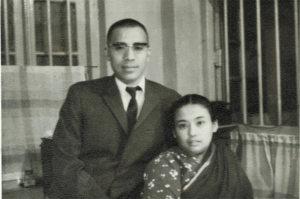
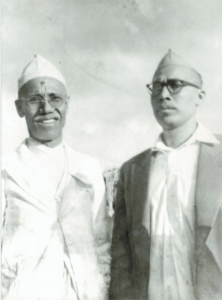
It is said a motherless child goes astray, but the motherless Maniharsha Jyoti was polite, dutiful and disciplined even from a young age. He would not eat until he had bowed his father’s feet in respect.
After passing his Matriculation in Kalimpong, Maniharsha Jyoti went to Calcutta for his higher studies. There, he stayed at the then well-known Dharmaman Sahu’s Kothi (office with residence), cooking morning and evening meals for all those who lived there. He studied till B. Com at Calcutta University.
At the time, Jagatman, son of the prominent physician Brishman Vaidya of Lalitpur, took up the name Dharma Aditya Dharmacharya and studied comprehensively Theravada Buddhism and established the Buddha Dharma Support Association in India. He published a monthly Buddhist magazine called ‘Buddha Dharma’ in Nepali Bahasa (Newari). Young Maniharsha Jyoti accepted Dharma Aditya Dharmacharya as his teacher and studied Buddhism under him. He helped his teacher working on the magazine ‘Buddha Dharma Wo Nepal Bhasa’. During this time, he was greatly influenced by Theravada Buddhism and, developed a love for his mother tongue.
Under Mahatma Gandhi’s leadership, the Indian independence movement was in full swing at that time. As a student, Maniharsha Jyoti actively participated in the freedom movement. He was a devout follower of Gandhi, and wore khadi kurta-pajamas or dhoti with a Gandhi cap. He continued to wear the white Gandhi cap even after returning to Kathmandu. His elder sisters used to weave white clothes at home and send them to him from Kathmandu. Love for his country, the need for independence and national development were lessons that he learnt in Calcutta.
After completing his studies, Maniharsha Jyoti went to Kalimpong to help his father with his business. As he achieved success in business, he opened offices in Lhasa, Calcutta and various other places in India. He continued to make progress in business. Afterwards, he returned to Kathmandu and opened industries that did well in meeting the needs of the nation. 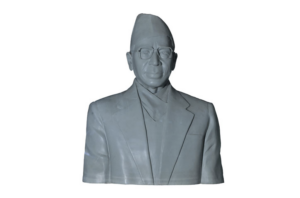
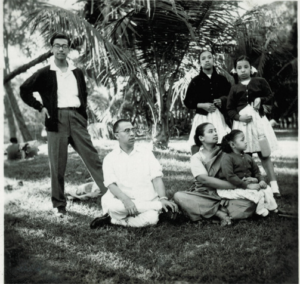
When Maniharsha Jyoti lived in Kalimpong and Calcutta, his home was always open for meals to Buddhist monks and visiting travelers.
For the propagation and promotion of Theravada Buddhism, he gave large sums of donations and alms. He secretly funded political parties and activists abroad to establish democracy in Nepal. He continued to support the political parties even later.
During his stay in India and after returning to Kathmandu, he aided associated organizations to uplift his mother tongue Nepal Bahasa, which was suppressed by the then government.
He did as much as he could for the development of religion (Buddhism and Vedic), culture, language (Nepali, Newari, Tamang, Tharu) in Nepal by giving advertisements and financial assistances to newspapers and magazines, publishing books and running institutions. He promoted social causes by serving in official positions in hospitals, universities, religious, cultural and welfare organizations.
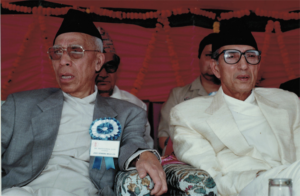
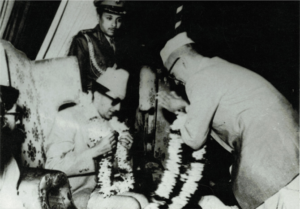
Maniharsha Jyoti earned a place in the hearts of the people with his gentle behavior, cordial disposition and his service to the community and the nation.
For his accomplishments, he was regarded as Nepal’s gem (Mani) to some, happiness (Harsha) to a few and light (Jyoti) to others. During his lifetime, he earned the respect of the people. He was awarded the nation’s highest honors.
On 2049 BS Magh 3 (January 16th, 1992), Maniharsha Jyoti departed this world, leaving a mark in the nation’s development and people’s memory.
विक्रम सम्वत् १९७४ मार्ग कृष्ण सप्तमीका दिन जन्मेको बालकको जन्म-पत्रिका लेखाउन तत्कालीन प्रसिद्ध ज्योतिष माधवराज ज्योशीकहाँ जाँदा बालकको टिप्पणी हेरी उनले उद्गार प्रकट गरेका थिए – ‘अहो कस्तो राम्रो लक्षणले युक्त भएको बालक । यस बालकले आफ्नो जीवन कालमा ठूला ठूला कामहरु गर्नेछ । यसको प्रसिद्धि यत्रतत्र फैलिनेछ।’आफ्नो सन्तानको सुन्दर भविष्यको कुरा सुनेर हर्षविभोर भएका पिता भाजुरत्न कंसाकार र माता ज्ञानमाया कंसाकारले बालक छोराको नाउँ हर्षै हर्षमा मणिहर्ष ज्योति राखे।
भविष्य जीवन जतिसुकै राम्रो हुने भनी ज्योतिषीले भने तापनि मणिहर्ष ज्योतिको बाल्यकाल सुखमय भएन । केलटोल मछिन्द्रबहालको चारैतिर ऐतिहसिक भीषण अग्निकाण्ड भयो जसमा भाजुरत्न कंसाकार र उनका दाज्यू कुलरत्न कंसाकारले चलाइआएका पसलहरु र कामदारहरु राखी चलाइआएका अरु दुई पसलहरु पनि बिक्रीको लागि राखिएका कपडाहरु र काँचा धागाहरु समेत सबै खरानी भयो ।
यस्तो भीषण अग्निकाण्डमा चारैतिरका घरहरु दन्दन्ती बल्दा पनि जुन घरमा बालक मणिहर्ष ज्योतिको जन्म भएको थियो त्यो तःखाछेँलाईआगोले छुन सकेन । यसको कारण कसैले दैवी शक्तिले रक्षा गरेको हो भने । केही बुज्रुकहरुले त्यस घरमा पुस्तौँदेखि काँसका भाँडाहरु बनाउने गरेकोले आगोले नछोएको हो भने । वास्तविक कारण जे भए पनि चारैतिरका घरहरु महिनौँ दिनसम्म जलिरहँदा पनि तःखाछेँ एउटा सुरक्षित भइरह्यो ।

बालक मणिहर्ष ज्योति २० महिनाको हुँदा गुंला धर्म व्रत बसेकी उनकी आमा ज्ञानमाया कंसाकारको स्वर्गवास भयो । बालक मणिहर्ष ज्योतिको पालन-पोषण कहिले आफ्नै घरमा र कहिले मावली र बूढोमावलीमा भयो ।
भाजुरत्न कंसाकार काठमाडौंमा रहि व्यापार चलाउन मुश्किल भएकोले आफ्नो बालक छोरा मणिहर्ष ज्योतिलाई दाज्यू कुलरत्न कंसाकारको जिम्मा लगाई व्यवसायको खोजीमा कालिम्पोङ्ग गई त्यहीं भाँडाकुँडाको पसल थापी बसे ।
मणिहर्ष ज्योति ५ वर्षको हुँदा नेपालका अन्तरराष्ट्रिय ख्यातिप्राप्त विद्वान पण्डित सिद्धिहर्ष बज्राचार्य (बाबुकाजी गुरुजु) को घण्टाघर पाठशालामा भर्ती गराए । केही समयपछि भाजुरत्न कंसाकारले आफ्ना छोरा मणिहर्ष ज्योतिलाई कालिम्पोङ्गमा नै झिकाई त्यहाँको स्कूलमा पढाउने व्यवस्था मिलाए ।
भाजुरत्न कंसाकारले अग्निकाण्डपश्चात् लिएको ऋण तिर्न नसकेसम्म काठमाडौं नआउने प्रतिज्ञा गरेका थिए भने छोरा मणिहर्ष ज्योतिले म्याट्रीकुलेशन पास नगरी काठमाडौं नजाने प्रतिज्ञा गरेका थिए । यसकारण उनी भाइहरुको साथमा व्रतबन्ध गर्न समेत काठमाडौंमा आएनन् । उनको व्रतबन्धपछि मात्र भयो ।
भाजुरत्न कंसाकारले व्यापारबाट रकम जम्मा गरी किशोर छोरालाई ऋण तिर्न काठमाडौं पठाए । मणिहर्ष ज्योतिले काठमाडौंमा आई आफ्ना जेठा बाबु र बाबुले काढेका ऋणहरु तिरे । आशा मारिसकेको रकम प्राप्त भएको, एउटा भरखरको ठिटो आई ऋण चुक्ता गर्न आएको र त्यस ठिटोको बोलाइ र शील- स्वभाव देखी प्रभावित भई साहूहरुले ल्याए जति रकम बुझिलिई बाँकी रकम मिन्हा गरिदिए ।
यही समयमा वि.सं. १९९० सालको भयंकर भूकम्पले काठमाडौंका धेरै घरहरु ढाल्यो । यो दुर्घटनाको खबर देश-विदेशमा फैलियो । यस खबरले चिन्तित भई भाजुत्न कंसाकारले ऋण तिर्न पठाएको छोराले ऋण तिर्न सक्यो सकेन, घर परिवारमा के अवस्था भयो भनी बुझ्न गोप्य रुपमा काठमाडौं आई घरको हालचाल बुझी कालिम्पोङ्ग नै फर्के ।
प्रायश: मातृविहीन बालकहरु बरालिने गरेको देखिन्छ तर मातृविहीन मणिहर्ष ज्योति सानै उमेरदेखि सुशील, कर्तव्यपरायण, अनुशासनशील थिए । उनी आफ्ना पिताका गोडा नढोगिकन केही खाँदैनथे ।


कालिम्पोङ्गमा म्याट्रीकुलेशन पास गरिसकेपछि उच्च शिक्षा अध्ययन गर्न मणिहर्ष ज्योति कलकत्तामा आए । त्यस बखत नाउँ चलेका धर्ममान् साहुको कोठीमा बिहान बेलुका भात पकाई खुवाउने गरी कलकत्तामा युनिभर्सिटीमा बी. कम. सम्म अध्ययन गरे ।
त्यसबेला ललितपुरका प्रख्यात वैद्य वृषमान् वन्द्यका छोरा जगतमानले भारतमा बौद्ध धर्म पुनरुद्वारक धर्मपालको सत्संगमा रही धर्म आदित्य धर्माचार्य नाम राखी थेरवाद बौद्ध धर्मको गहन अध्ययन गरेका थिए । यिनले नेपालभाषामा ‘बुद्ध धर्म’ नामक बौद्ध मासिक पत्रिका प्रकाशित गरेका थिए । युवक मणिहर्ष ज्योतिले धर्म आदित्य धर्माचार्यलाई गुरु मानी बुद्ध धर्मको अध्ययन गरे र धर्माचार्यले सम्पादन गरिरहेको ‘बुद्ध धर्म र नेपालभाषा’ पत्रिकामा काम गरि आफ्ना गुरुलाई सहयोग गरे । त्यसै बेलादेखी मणिहर्ष ज्योतिलाई थेरवाद बुद्ध धर्मले निकै प्रभावित गर्यो र उनमा मातृभाषाप्रति प्रेम रहन गयो ।
त्यसबेला भारतमा महात्मा गान्धीको आह्वानमा भारत स्वतन्त्रताको लागि आन्दोलन चलिरहेको थियो । यस स्वतन्त्रता आन्दोलनमा विद्यार्थी मणिहर्ष ज्योतिले सत्रिय भाग लिएका थिए । उनी गान्धीका भक्त थिए र खद्दरको कुर्ता पायजामा वा धोती र गान्धी टोपी लगाई हिंड्थे । गान्धी टोपी उनले पछिसम्म पनि लगाइरहे । काठमाडौंमा आउँदा भने कार्चोपी टोपी लगाउँथे । उनका ज्येठी आमाहरुले घरमै कोरा कपडा बुनी काठमाडौंबाट उनलाइ पठाइदिने गरेका थिए । राष्ट्रप्रति प्रेम, स्वतन्त्रताको आवश्यकता र राष्ट्रिय उन्नतिको खाँचो उनले कलकत्तामा नै सिके ।


पढाइ सकिएपछि मणिहर्ष ज्योति कालिम्पोङ्गमा गई आफ्नो पिताको व्यापारको काममा सघाउन गए । व्यापार व्यवसायमा उन्नति गर्दै लगी उनले ल्हासा, कलकत्ता र भारतका विभिन्न ठाँउहरुमा समेत कार्यालयहरु खोले । व्यापार व्यवसायमा उनको उत्तरोत्तर उन्नति हुँदै गयो । पछि उनी काठमाडौंमा आए र विभिन्न प्रकारका उद्योगहरु खोली राष्ट्रिय आवश्यकताको पूर्ति गर्न सफल भए ।
मणिहर्ष ज्योतिले कालिम्पोङ्ग र कलकत्तामा रहँदा आफ्नो निवासस्थानमा बौद्ध भिक्षुहरु र अतिथि अभ्यागत यात्रूहरुको भोजन व्यवस्थाको लागि सधैं खुला राखेका थिए ।
थेरवाद बुद्ध धर्म प्रचारप्रसार र सम्बर्द्धनको लागि उनले ठूलो धनराशि दान गरे र चन्दा दिए । नेपालमा प्रजातन्त्र स्थापनाको लागि विदेशस्थित राजनीतिक संस्था र कार्यकर्ताहरुलाई गोप्य रुपमा आर्थिक सहयोग गरे । राजनीतिक संस्थाहरुलाई सहयोग गर्ने कार्यक्रम पछिसम्म पनि कायम रह्यो ।
तत्कालीन सरकारबाट दमन गरिराखेको आफ्नो मातृभाषा नेपालभाषाको उत्थान गर्न उनले भारतमा रहँदा र काठमाडौमा आइसकेपछि पनि तत्सम्बन्धी संस्थाहरुलाई सहयोग गर्दै रहे ।
नेपालको धर्म (बौद्ध एंव वैदिक), संस्कति, भाषा (नेपाली, नेवारी, तामाङ्ग, थारु) को विकासको लागि पत्र-पत्रिकाहरुलाई विज्ञापन र आर्थिक सहायता दिई, पुस्तक प्रकाशनको लागि र संस्था संचालनको लागि आर्थिक सहयोग पुर्याई आफ्नो तर्फबाट गर्न सक्ने जति सेवा गरे । विश्वविद्यालय, अस्पताल, धार्मिक, सांस्कृतिक एवं सामाजिक संस्थाहरुमा पदाधिकारी रही सामाजिक सेवा गरे ।
आफ्नो भद्रव्यवहार, मिलनसार स्वभाव र समाज एवं राष्ट्रको सेवाभावले मानिसहरुको हृदयमा स्थान पाउन मणिहर्ष ज्योति सफल भए ।


उनको यही कामले गर्दा उनलाई कसैले नेपालको एउटा मणि हो भने, कसैले हर्ष हो भने र कसैले ज्योति हो भने । उनले आफ्नो जीवनकालमा जनताबाट सम्मान पाए । राज्यस्तरबाट उच्चस्तरको मान-पदवीबाट विभूषित भए ।
वि.सं. २०४९ साल माघ ३ गतेका दिन देशमा कीर्ति र मानिसहरुको हृदयमा सम्झना छाडी मणिहर्ष ज्योति यस संसारबाट शून्यतामा विलीन भए ।

